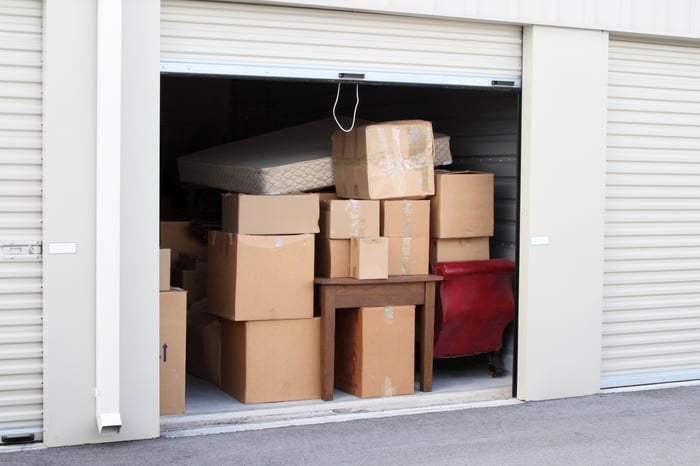There's a reason I make it a point to load my portfolio with real estate investment trusts (REITs). I like the idea of investing in real estate, but I don't like the idea of having to buy and maintain actual properties of my own. It's just too much work and too much risk.
With REITs, I can sit back, do nothing, and wait for the shares I buy to gain value, all the while collecting some pretty sweet dividends. While there are a number of REITs on my radar these days, here's one I'm particularly motivated to buy.

Image source: Getty Images.
A fairly recession-proof business
We don't know what the next few years have in store for the economy. From a jobs perspective, things are looking rosy right now. But we don't know if that situation will decline in the near term, and some financial experts are already sounding recession warnings (whether they're perhaps overblown is a different story).
That's why right now, I'm focused on REITs that don't only have growth potential, but that are fairly recession-proof. And Public Storage (PSA 0.30%) fits the bill in both regards.
A lot of people's living situations changed in the wake of the pandemic. And now, remote work is prompting many people to explore new cities or change their setups.
That's caused, and should continue to cause, a boom in self-storage demand. That's one reason Public Storage is high on my radar.
Public Storage is the world's largest owner and operator of self-storage facilities. The company maintains nearly 2,500 facilities spread out across the U.S. and serves more than 1 million customers. And given the recent uptick in self-storage demand, it's a REIT that's absolutely poised for growth.
Not only that, but Public Storage is in a solid position to bring in revenue even if economic conditions deteriorate. First of all, people will always need a safe place to store the belongings they don't have room for. That won't change even if the economic situation sours. And while it's easy to argue that people will start to accumulate less stuff if a recession hits, that doesn't account for the belongings they already have and need to store.
Furthermore, the beauty of self-storage is that it's not very expensive. So even if the economy starts to slump and consumers are forced to cut back, they won't necessarily rush to dump their storage units.
In fact, if a recession hits and people are forced to downsize, that could actually be a boon to the self-storage industry. And while we clearly don't want to hope for a recession, the reality is that companies like Public Storage might benefit from one more so than get hurt by one.
Now this isn't to say that self-storage companies won't be affected by a recession at all if one were to hit. One risk associated with self-storage is that these companies tend to offer flexible, month-to-month leases that are easy to break. So if economic conditions worsen, some people may truly get backed into a wall and stop paying for self-storage if push comes to shove. But for the most part, companies like Public Storage are well-positioned to weather an economic downturn.
Should you invest in Public Storage?
Public Storage has managed to sustain solid growth, and over the past five years, its shares are up 49%. One drawback to buying Public Storage is that it doesn't offer the most generous dividend yield. At just 2.57%, you can easily find REITs with higher dividends.
But dividends aren't the only thing to look for in an investment, REITs included. Rather, it pays to focus on growth potential and staying power. I think Public Storage checks off both of those boxes. And given the potential for some degree of near-term economic turbulence, I like the idea of owning a company that's likely to sustain revenue even if things take a notable turn for the worse.





